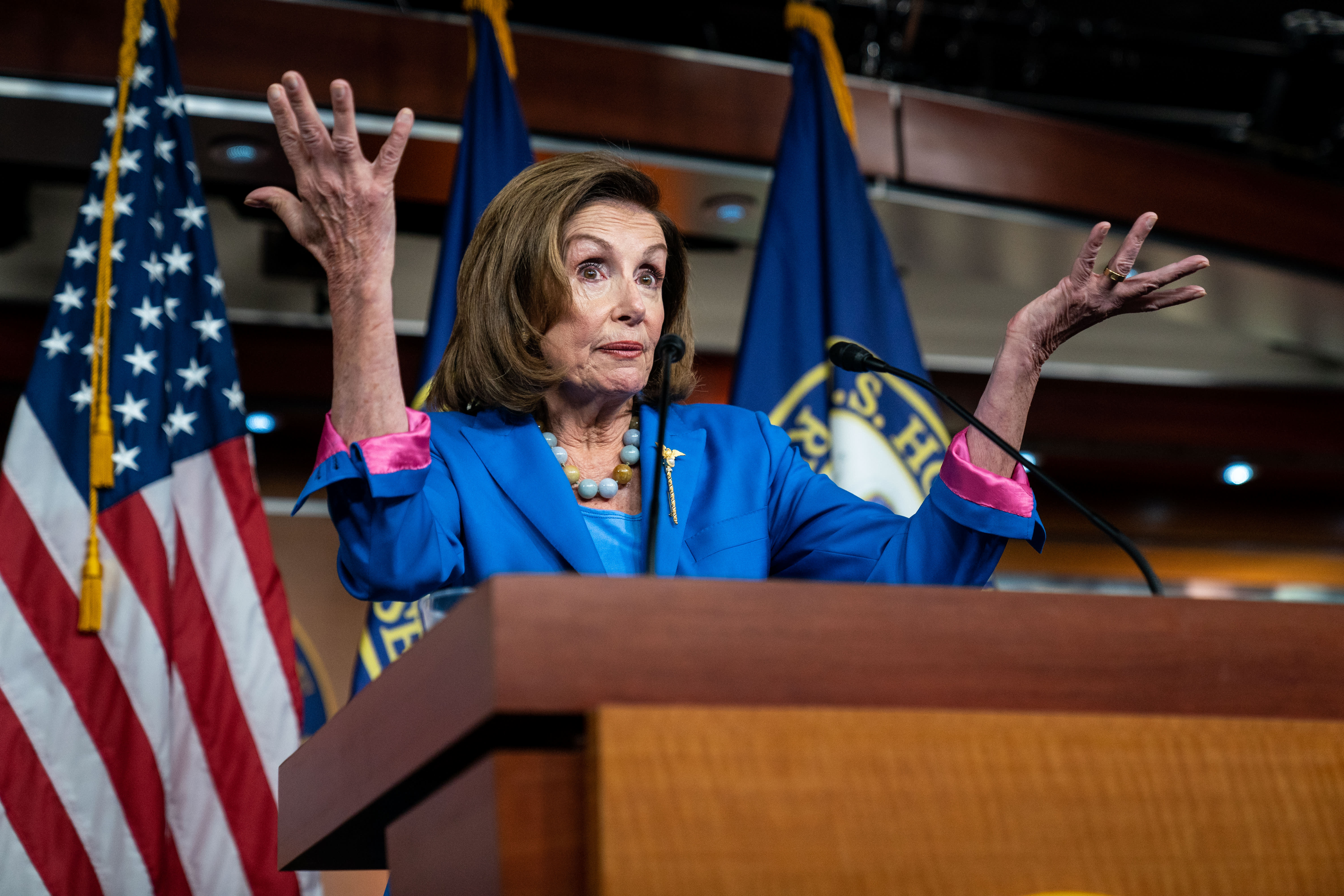
WASHINGTON – House Speaker Nancy Pelosi is planning to hold a vote on a stalled bipartisan infrastructure bill on Friday, after the bill failed to win enough support from progressives to pass Thursday night.
Pelosi began the day Friday with an emboldened progressive caucus and growing frustration among her rank-and-file members at the prospect of continued negotiations over the weekend.
Even direct involvement by President Joe Biden on Thursday was not enough to break the intra-party stalemate that threatens his entire domestic agenda.
Shortly before midnight, it became clear that neither Biden nor Democratic leaders in Congress had managed to convince a group of progressive House members to back the bill.
Where the talks go from here is anyone’s guess.
Biden’s schedule on Friday remains open, much as it has been all this week. Psaki said Thursday that this is so the president can be available to congressional leaders and key stakeholders in the House and Senate throughout the day.
As Pelosi left the Capitol just after midnight on Friday morning, she told reporters, “There will be a vote today,” meaning Friday.
For White House aides who had hoped for a last-minute breakthrough, Thursday’s postponed vote was a disappointment. The $500 billion infrastructure and jobs package is a pillar of Biden’s domestic agenda, and fulfills bedrock campaign promises he made.
U.S. President Joe Biden meets virtually with governors, mayors, and other state and local elected officials to discuss the bipartisan Infrastructure Investment and Jobs Act, in the South Court Auditorium at the White House in Washington, August 11, 2021.
Evelyn Hockstein | Reuters
But Thursday’s failure to launch wasn’t really a death blow for the bill itself. Its benefits and costs will be felt by Americans for the next decade or more, so whether it passed the House on Friday, or next Monday or next Friday is immaterial.
With stakes so high, it’s little wonder the president has focused his energy almost entirely on Congress this week. On Monday and Tuesday, he hosted the two key senators, West Virginia’s Joe Manchin and Arizona’s Kyrsten Sinema, for one-on-one meetings at the White House.
A scheduled presidential trip to Chicago on Wednesday was called off at the last minute so that Biden could huddle at the White House with Senate Majority Leader Chuck Schumer and House Speaker Nancy Pelosi, while his negotiators met with Sinema on the Hill.
On Thursday, again, much of Biden’s schedule was left open so he could participate in negotiations.
Pelosi and Biden have been trying to win support for the infrastructure bill among progressives, who say they will not vote for it unless the House is also ready to pass a sweeping budget reconciliation bill to expand the social safety net and climate policy.
But fundamental parts of that bill are still being debated in the Senate. House progressives are worried that if they vote to pass an infrastructure bill championed by moderates, they will lose any leverage they have in pushing these same moderates to back a transformative budget bill later on.
Progressives also insist that any budget reconciliation bill be at least $3 trillion, and include provisions like free preschool and community college, child-care subsidies and an expansion of Medicare to cover dental, vision and hearing care.
U.S. Senator Joe Manchin (D-WV) departs a closed-door Senate Armed Services Committee hearing at the U.S. Capitol in Washington, September 14, 2021.
Evelyn Hockstein | Reuters
But on Thursday, Manchin released a signed agreement he reached with Schumer more than two months ago in July that spells out what Manchin would support in a budget bill.
The maximum topline spending that Manchin would vote for is $1.5 trillion.
As of Thursday night, progressives and Manchin still appeared to be more than $1 trillion apart.
But as Pelosi left the Capitol, she told reporters, “We’re not trillions of dollars apart.” She did not elaborate on where the two sides had found common ground.
House Speaker Nancy Pelosi (D-CA) walks to the House floor at the U.S. Capitol in Washington, U.S., September 29, 2021.
Elizabeth Frantz | Reuters
Pelosi’s iron-willed optimism stands in contrast to some of her colleagues’ more hard-nosed assessments about the bipartisan infrastructure bill’s chances.
On Thursday, a journalist asked House Majority Leader Steny Hoyer, Pelosi’s deputy, what he thought the odds were of passing the infrastructure bill Thursday night.
“Are you confident it will pass?”
“Nope,” Hoyer replied.
Still, many on Capitol Hill are betting that in the end, Pelosi will nail down the votes she needs to pass the infrastructure bill.
Her ability to find consensus within an often fractious Democratic caucus is legendary, and she appeared to relish the high stakes and ticking clock Thursday.
“Let me just tell you about negotiating at the end,” Pelosi said to reporters. “That’s when you really have to weigh in. You cannot tire. You cannot concede. This is the fun part.”




